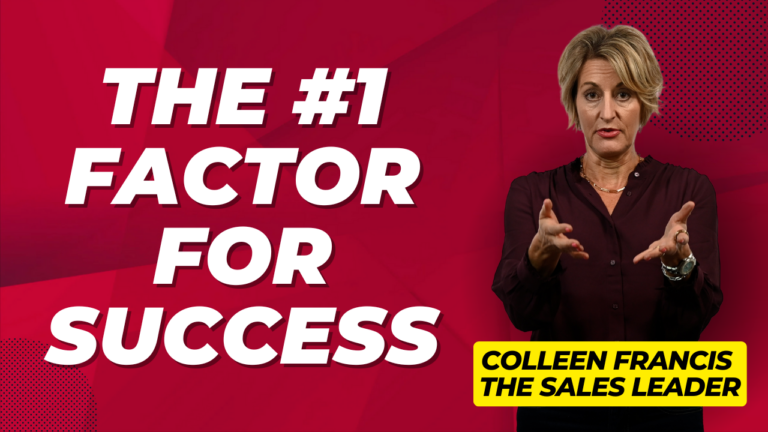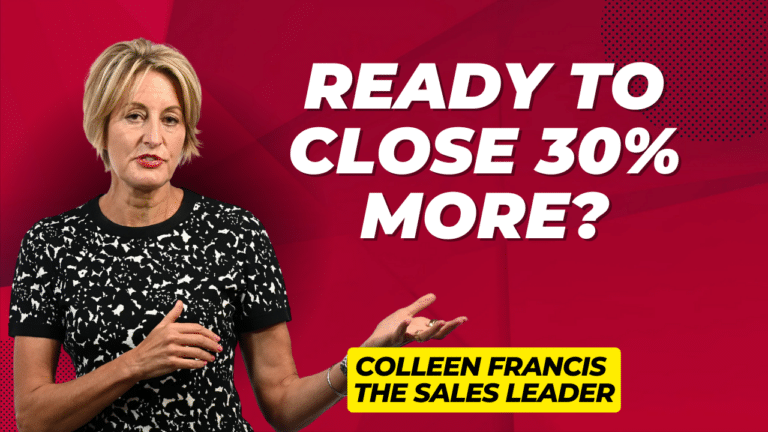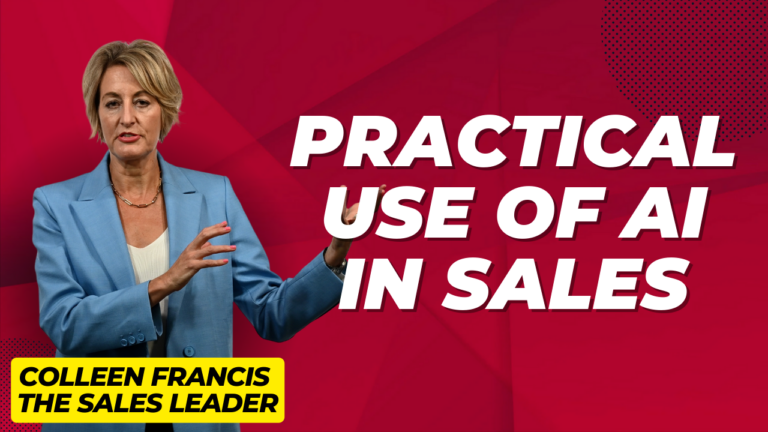There’s a three-letter word that stands between sellers and success. It’s not the word you. But it’s close. It’s ego: that internal dialogue we all have with ourselves that—if left unchecked—can manifest itself as self-absorption, stubbornness, and gives others the impression we have an attitude problem.
That’s why I say ego is the thief of success. No one but you can bring it to heel. And you must do so. Your career as a sales professional depends on it.
So, here’s how you get started on that mission-critical task.
Be Willing to See the Problem
No one can begin to fix a problem unless they’re willing to admit they have a problem first. I regularly work with sellers who are struggling to meet their numbers but who cross their arms and resist changing anything. In doing so, they overlook who is the common denominator at the center of their difficulties.
Numbers don’t have an ego. So, you must measure performance on a regular basis to create a baseline of what’s normal. A client of mine—a sales team in the Medical software industry—was struggling to meet their quarterly numbers and their business culture was suffering. The sellers I interviewed there were steadfast in saying they were not the problem: “It’s the economy…or it’s the buyer.” But when we started measuring for baseline performance, we found that it should be taking five calls to get a qualified lead, followed by six meetings to get a sale (so… 5 x 6=30).
Over five years, the metric within this sales team had slid steadily. Now, it was taking up to 200 calls to accomplish what used to be done within a total of 30 calls. Numbers were able to skillfully cut through the excuses. Now, everyone on the team could see the root of the problem and create a pathway to solving it.
Understand the Dimension of the Problem
Only when our ego is in check—when we stop blaming everyone but ourselves for a problem at hand—can we begin to see the full extent of how we are holding ourselves back from success. That’s why I tell clients to do more than just measure for results (that’s because results can only tell you whether a team is hitting their targets for a specific period…and nothing else).
Instead, you must measure for effectiveness: look at all the individual activities that go into creating each sale. Carefully examine your sales velocity metrics (i.e., opportunities in your sales pipeline, average deal size, win-loss ratio, and sales cycle from prospect to close). Are they eroding over a period of time? Let’s assume you have a 30-day sales cycle. One month of eroding metrics is an accident. Two months might be a coincidence. But three months is a pattern. And that’s when you need to pinpoint an issue to correct. If your sales cycle is less than 30 days, scale your work back to seek out weekly or biweekly patterns.
Be Willing to Change: 6 Action Points
Change is a choice. You have to want it for yourself. And you’ll only get it once you’ve turned down the volume on your inner ego monologue. Here are six action points you can implement once you’ve made the decision to seek greater success for yourself.
1. Be open with others. Ask them for their feedback on how you work and be willing to listen to their suggestions and implement accordingly.
2. If you’re a seller, get coaching from your manager. If you’re a group leader, be willing to offer it to each member of your team.
3. Learn from the best. Participate in ride-alongs with your very best sales reps and teach their sales practices to others.
4. Troubleshoot together. Participate in team-selling exercises so they each gain evidence of what could be going wrong with their current selling methods.
5. Listen to what the experts say. There’s an abundance of newsletters, videos, and podcasts—much of it free…including mine—that can give you and your team instantly actionable advice that’s been field-tested. But ensure the advice you’re getting is current: things have changed drastically in sales even in just the last four years.
6. Measure and adjust. When it comes to making changes, never just do and forget. When you implement something new in your sales process, measure success weekly and track results mercilessly. Act quickly if things are not working.
Always remember what my Peloton coach, Jess Sims, says: “No ego, amigo.” That wisdom applies to our work as sellers, too. Stop letting your ego keep you enmeshed in resistance to much-needed change. All sales problems are solvable and all fixes are implementable. What’s lacking is a willingness to be the change we want to see. Choose better for yourself.




